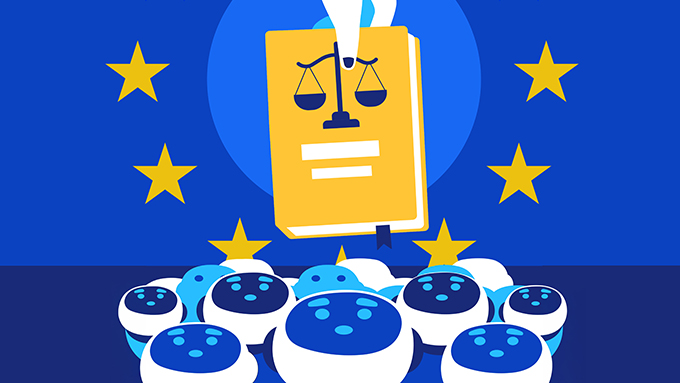What Has Come About through the Social Media Regulation?
Introduction
In parallel with the developments in technology, the increase in the rate of internet usage and the number of online environments increases the exploitability of the ease of use provided through these environments. Many states, especially European Union countries, have started to make legal regulations in order to combat crimes committed over the internet and through online platforms, and to increase the sanction mechanism of their domestic laws on these crimes.
In Turkey, through Law No. 5651 on the Regulation of Publications on the Internet and Combating Crimes Committed through Such Publication (“Internet Law”), regulations regarding these online environments have been introduced and, by this means, it is aimed to protect the fundamental rights and freedoms of individuals. The most recent regulation brought in this context is Law No. 7253[1], which is publicly known as the Social Media Law and, through this law, various amendments are stipulated in the Internet Law. Through these amendments, it is aimed to increase the functionality of the state sanction mechanism against social media platforms that are especially established in foreign countries. This aim was revealed by the statement, “Despite the large number of users and billions of dollars of revenue they have earned from their users, social network providers have not developed preventive and protective mechanism needed to protect the rights of individuals, (…) or they resisted the justified demands of the states, (…) difficulties are experienced in fulfilling the positive obligation of states to protect fundamental rights and freedoms, (…) Hence, it is seen that the establishment of a peer-to-peer relationship between individuals, States and social network providers stands out as the main solution”[2].
In this article, amendments introduced to the Internet Law through Law No. 7253 will be examined.
Decision of Content Removal
Through the amendment introduced to the Internet Law by Law No. 7253, it is now possible to render a decision to remove the content, in addition to the decision to block access, with respect to publications on the internet which bear adequate suspicion that they constitute the crimes envisaged in Article 8 of the Internet Law, or violate personal rights, and/or the right to privacy. Accordingly, in cases where the decision to block access can be given, the decision to remove the content may also be given.
Social Network Provider
Through Law No. 7253, the concept of Social Network Provider has been introduced into the Internet Law. The Social Network Provider refers to real or legal persons who enable users to create, view or share content, such as text, images, sound, and location on the internet for social interaction (Article 2/1,s of the Internet Law). The concept of Social Network Provider covers the real or legal persons who produce, change, and provide all kinds of information or data presented to users on the internet, defined as the Content Provider in the Internet Law. To the contrary, however, in the concept of Social Network Provider, the existence of the elements of the purpose of social interaction and creating and sharing content by the users are sought.
By this definition, it is stated that it is aimed to include social media that are mostly preferred by the users, as well (Article 1 of the Justification of Law No. 7253).
Obligations of Social Network Providers
Through the concept of Social Network Provider, a new actor has been defined in the Internet Law and, in addition to the obligations of this actor based on being a Content Provider (Additional Article 4/9 of the Internet Law), new obligations have been stipulated, which will be explained in detail, below.
Obligation to Appoint Representative
One of the most important obligations imposed on Social Network Providers through Law No. 7253 is the obligation to appoint a representative. Accordingly, Social Network Providers established abroad with more than one million in daily access are obliged to appoint at least one legal or natural person as a representative in Turkey. If the representative is a natural person, they must be a Turkish citizen (Additional Article 4/1 of the Internet Law).
Pursuant to the regulation, the said representative will take necessary actions regarding notices or demands of the Information Technologies and Communication Authority (“Authority”), the Access Providers Union, the judicial or administrative authorities, and will respond to the applications within the scope of the Internet Law, and ensures the fulfillment of other obligations under the Internet Law. In addition, the regulation stipulates the publication obligation of the representative’s contact information on the website of the Social Network Provider for ease of access.
Through this regulation, it is aimed to ensure that the Social Network Providers established abroad will effectively execute decisions to remove content and/or block access and to respond to demands regarding violation of personal rights and privacy.
Obligation to Respond to Applications
The obligation to respond to applications regarding Article 9 (violation of personal rights) and 9/A (violation of the right to privacy) of the Internet Law, affirmatively or negatively –if negative, with justification- within 48 hours, has been introduced for the Social Network Providers domestically based or established abroad with more than one million daily accesses (Internet Law, Annex Article 4/3).
Obligation to Report
The obligation to report to the Authority, every six months in Turkish, regarding i) execution of the decision of removal of content and/or blocking access, and ii) the application of the individuals, has been brought to the Social Network Providers domestically based and established abroad with more than one million daily accesses. In addition, it is stipulated that the report on the applications of the individuals shall be published on the website of the Social Network Provider (Additional Article 4/4 of the Internet Law).
Obligation of Data Retention in Turkey
The obligation to take necessary measures to retain data in Turkey of the users located in Turkey has been introduced for the Social Network Providers domestically based or established abroad with more than one million daily accesses (Additional Article 4/5 of the Internet Law). However, any specific sanction to be applied in the event of violation of this obligation has not been foreseen.
Obligation to Block Access and/or Remove Content
Social Network Providers and other providers[3] defined in the Internet Law are obliged to fulfill the decision to block access and/or remove content given by the judge, public prosecutor, or the Head of the Authority, immediately, and within four hours from the notification of the decision, at the latest (Article 8/5 of the Internet Law).
Legal Liability
In the event that the content that is determined to be illegal by a judge or through a court decision is notified to the Social Network Provider, the Social Network Provider, who has not removed the content or blocked access within twenty-four hours despite the notification, will be held liable for compensation for any damages incurred. Furthermore, for the exercise of this legal liability, there is no requirement for the provider to be held liable or to be sued (Additional Article 4/8 of the Internet Law).
Sanctions to Be Applied for Violations of the Obligations
Through the amendment of Law No. 7253, the scale of sanctions envisaged in the Internet Law, which was between TL 10,000 – TL 100,000 to be applied in the event of violations of the obligations has been augmented to between TL 100,000 – TL 1,000,000 (Article 5/6 of the Internet Law). Moreover, through the new concept of the Social Network Provider, new sanctions have been foreseen in the event of violations of some the newly-introduced obligations.
Sanctions in the event of Violation of the Obligation to Appoint a Representative
For a Social Network Provider who violates the obligation to appoint a representative, a gradually increasing sanction system is envisaged until the obligation is fulfilled (Additional Article 4/2 of the Internet Law). Accordingly:
- The Social Network Provider, who does not fulfill the obligation to appoint a representative, is notified by the Institution, firstly;
- An administrative fine of TL 10,000,000 is imposed on the Social Network Provider who fails to appoint a representative within 30 days after notification;
- The Social Network Provider, who still fails to appoint a representative within 30 days following the notification of the administrative fine, will be fined an additional TL 30,000,000 administrative fine;
- Within 30 days following the notification of the second administrative fine, if the Social Network Provider still does not appoint a representative, the real or legal person taxpayers resident in Turkey shall be prohibited from making any new advertisement of the Social Network Provider and, in this context, establishing new contracts and transferring money will be prohibited, as well;
- The internet traffic bandwidth of the Social Network Provider, who still has not appointed a representative within 3 months from the date of the decision to ban the advertisement, may be reduced by 50% upon an application to the criminal judge of peace; and
- The internet traffic bandwidth of the Social Network Provider, who still has not appointed a representative within 30 days following the reduction decision, may be reduced by 90% upon application to the criminal judge of peace.
Furthermore, only one-fourth of the administrative fines imposed on the Social Network Provider who fulfills the obligation to appoint a representative at any stage shall be collected, if a ban of advertisement is imposed, the ban will be abolished and the judicial decisions, if any, shall be automatically rendered null and void.
Sanction In Case of Violation of the Obligation to Respond to the Applications
The Social Network Provider who fails to fulfill this obligation shall have imposed upon it a TL 5,000.000 administrative fine.
Sanction In Case of Violation of the Obligation to Report
The Social Network Provider who fails to fulfill this obligation shall be fined a TL 10,000.000 administrative fine.
Sanction In Case of Violation of the Obligation to Block Access and/or Remove the Content
The Social Network Providers established abroad with more than one million daily accesses, i) shall be fined fifty thousand days of a judicial fine in the event of failure to comply with the decision of protection measure to block access and/or remove the content, ii) shall have an administrative fine imposed upon it of TL 1,000,000 in the event of failure to comply with the decision of the administrative measure to block access and/ or remove the content. If the decision is not fulfilled within 24 hours from the date the administrative fine is imposed, the Authority may cancel the authorization of the Social Network Provider.
Notification of the Administrative Fines
Through the paragraph added to Article 3 of the Internet Law, the administrative fines are notified to the addressees domestically based or established abroad via e-mail or other communication tools that are collected through the information included on their websites, domain name, IP address and other resources. These notices have the effect of notification, and they are deemed to have been served at the end of the fifth day following the date of notification (Article 3/5 of the Internet Law).
The Right to Be Forgotten
The concept of right to be forgotten, that is legally presenting itself in the European Union and -despite legal grounds not having been issued in Turkey yet- appearing in the Constitutional Court decisions of Turkey, has gained legal grounds for the first time through the amendment introduced to the Internet Law, even though it is not mentioned as “the right to be forgotten”. Accordingly, upon a request by those whose personal rights have been violated due to publications made on the internet, the judge may decide not to associate the applicant’s name with the internet addresses subject to the decision given under this Article (Article 9/10 of the Internet Law).
Conclusion
Through the concept of Social Network Provider introduced to the Internet Law through Law No. 7253, the obligations and the sanctions mostly regarding social media platforms are regulated. Along with the other obligations of the Social Network Providers arising from the Internet Law, the obligation to appoint a representative, to report to the Authority, to respond to the applications with justification, and to execute the decision of removal of content and/or blocking access of the judge, public prosecutor, and the Head of the Authority, has been brought. In addition, sanctions to be imposed on Social Network Providers in the event of failure to fulfill these obligations are regulated. Thus, it is understood that the state aims to increase the sanctioning power on content published on widely used social media platforms, and to establish peer-to-peer relationship with the platforms established abroad. Finally, although it is not clearly named as the right to be forgotten, the concept of right to be forgotten, eventually has found a legal execution area in the Internet Law.
[1] Law No. 7253 on the Amendment to the Law on the Regulation of Publications on the Internet and Combating Crimes Committed through Such Publication, which entered in force through publication in the Official Gazette dated 31.07.2020 and numbered 31202.
[2] General Justification of Law No.7253.
[3] İdil Gencosmanoğlu, Internet Actors in Law No. 5651, Erdem&Erdem Newsletter, June 2020.
All rights of this article are reserved. This article may not be used, reproduced, copied, published, distributed, or otherwise disseminated without quotation or Erdem & Erdem Law Firm's written consent. Any content created without citing the resource or Erdem & Erdem Law Firm’s written consent is regularly tracked, and legal action will be taken in case of violation.








